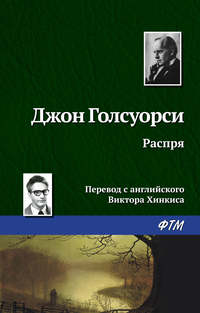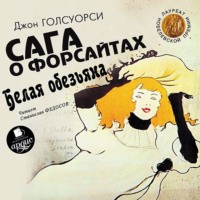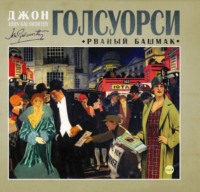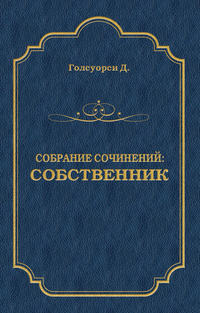 полная версия
полная версияThe Country House
“We are all a little mad! What did that woman, Lady Malden, mean by talking as she did? I detest her!”
“Oh, Mr. Vigil! She has the best intentions!”
“Intentions?” said Gregory. “I loathe her! What did we go to her stuffy drawing-room for? Look at that sky!”
Mrs. Shortman looked at the sky.
“But, Mr. Vigil,” she said earnestly, “things would never get done. Sometimes I think you look at everything too much in the light of the way it ought to be!”
“The Milky Way,” said Gregory.
Mrs. Shortman pursed her lips; she found it impossible to habituate herself to Gregory’s habit of joking.
They had scant talk for the rest of their journey to the S. R. W. C., where Miss Mallow, at the typewriter, was reading a novel.
“There are several letters for you, Mr. Vigil”
“Mrs. Shortman says I am unpractical,” answered Gregory. “Is that true, Miss Mallow?”
The colour in Miss Mallow’s cheeks spread to her sloping shoulders.
“Oh no. You’re most practical, only – perhaps – I don’t know, perhaps you do try to do rather impossible things, Mr. Vigil.”
“Bilcock Buildings!”
There was a minute’s silence. Then Mrs. Shortman at her bureau beginning to dictate, the typewriter started clicking.
Gregory, who had opened a letter, was seated with his head in his hands. The voice ceased, the typewriter ceased, but Gregory did not stir. Both women, turning a little in their seats, glanced at him. Their eyes caught each other’s and they looked away at once. A few seconds later they were looking at him again. Still Gregory did not stir. An anxious appeal began to creep into the women’s eyes.
“Mr. Vigil,” said Mrs. Shortman at last, “Mr. Vigil, do you think – ”
Gregory raised his face; it was flushed to the roots of his hair.
“Read that, Mrs. Shortman.”
Handing her a pale grey letter stamped with an eagle and the motto ‘Strenuus aureaque penna’ he rose and paced the room. And as with his long, light stride he was passing to and fro, the woman at the bureau conned steadily the writing, the girl at the typewriter sat motionless with a red and jealous face.
Mrs. Shortman folded the letter, placed it on the top of the bureau, and said without raising her eyes —
“Of course, it is very sad for the poor little girl; but surely, Mr. Vigil, it must always be, so as to check, to check – ”
Gregory stopped, and his shining eyes disconcerted her; they seemed to her unpractical. Sharply lifting her voice, she went on:
“If there were no disgrace, there would be no way of stopping it. I know the country better than you do, Mr. Vigil.”
Gregory put his hands to his ears.
“We must find a place for her at once.”
The window was fully open, so that he could not open it any more, and he stood there as though looking for that place in the sky. And the sky he looked at was very blue, and large white birds of cloud were flying over it.
He turned from the window, and opened another letter.
“LINCOLN’S INN FIELDS,
“May 24, 1892.
“MY DEAR VIGIL,
“I gathered from your ward when I saw her yesterday that she has not told you of what, I fear, will give you much pain. I asked her point-blank whether she wished the matter kept from you, and her answer was, ‘He had better know – only I’m sorry for him.’ In sum it is this: Bellow has either got wind of our watching him, or someone must have put him up to it; he has anticipated us and brought a suit against your ward, joining George Pendyce in the cause. George brought the citation to me. If necessary he’s prepared to swear there’s nothing in it. He takes, in fact, the usual standpoint of the ‘man of honour.’
“I went at once to see your ward. She admitted that the charge is true. I asked her if she wished the suit defended, and a counter-suit brought against her husband. Her answer to that was: ‘I absolutely don’t care.’ I got nothing from her but this, and, though it sounds odd, I believe it to be true. She appears to be in a reckless mood, and to have no particular ill-will against her husband.
“I want to see you, but only after you have turned this matter over carefully. It is my duty to put some considerations before you. The suit, if brought, will be a very unpleasant matter for George, a still more unpleasant, even disastrous one, for his people. The innocent in such cases are almost always the greatest sufferers. If the cross-suit is instituted, it will assume at once, considering their position in Society, the proportions of a ‘cause celebre’, and probably occupy the court and the daily presses anything from three days to a week, perhaps more, and you know what that means. On the other hand, not to defend the suit, considering what we know, is, apart from ethics, revolting to my instincts as a fighter. My advice, therefore, is to make every effort to prevent matters being brought into court at all.
“I am an older man than you by thirteen years. I have a sincere regard for you, and I wish to save you pain. In the course of our interviews I have observed your ward very closely, and at the risk of giving you offence, I am going to speak out my mind. Mrs. Bellew is a rather remarkable woman. From two or three allusions that you have made in my presence, I believe that she is altogether different from what you think. She is, in my opinion, one of those very vital persons upon whom our judgments, censures, even our sympathies, are wasted. A woman of this sort, if she comes of a county family, and is thrown by circumstances with Society people, is always bound to be conspicuous. If you would realise something of this, it would, I believe, save you a great deal of pain. In short, I beg of you not to take her, or her circumstances, too seriously. There are quite a number of such men and women as her husband and herself, and they are always certain to be more or less before the public eye. Whoever else goes down, she will swim, simply because she can’t help it. I want you to see things as they are.
“I ask you again, my dear Vigil, to forgive me for writing thus, and to believe that my sole desire is to try and save you unnecessary suffering.
“Come and see me as soon as you have reflected:
“I am,
“Your sincere friend,
“EDMUND PARAMOR.”
Gregory made a movement like that of a blind man. Both women were on their feet at once.
“What is it, Mr. Vigil? Can I get you anything?”
“Thanks; nothing, nothing. I’ve had some rather bad news. I’ll go out and get some air. I shan’t be back to-day.”
He found his hat and went.
He walked towards the Park, unconsciously attracted towards the biggest space, the freshest air; his hands were folded behind him, his head bowed. And since, of all things, Nature is ironical, it was fitting that he should seek the Park this day when it was gayest. And far in the Park, as near the centre as might be, he lay down on the grass. For a long time he lay without moving, his hands over his eyes, and in spite of Mr. Paramor’s reminder that his suffering was unnecessary, he suffered.
And mostly he suffered from black loneliness, for he was a very lonely man, and now he had lost that which he had thought he had. It is difficult to divide suffering, difficult to say how much he suffered, because, being in love with her, he had secretly thought she must love him a little, and how much he suffered because his private portrait of her, the portrait that he, and he alone, had painted, was scored through with the knife. And he lay first on his face, and then on his back, with his hand always over his eyes. And around him were other men lying on the grass, and some were lonely, and some hungry, and some asleep, and some were lying there for the pleasure of doing nothing and for the sake of the hot sun on their cheeks; and by the side of some lay their girls, and it was these that Gregory could not bear to see, for his spirit and his senses were a-hungered. In the plantations close by were pigeons, and never for a moment did they stop cooing; never did the blackbirds cease their courting songs; the sun its hot, sweet burning; the clouds above their love-chase in the sky. It was the day without a past, without a future, when it is not good for man to be alone. And no man looked at him, because it was no man’s business, but a woman here and there cast a glance on that long, tweed-suited figure with the hand over the eyes, and wondered, perhaps, what was behind that hand. Had they but known, they would have smiled their woman’s smile that he should so have mistaken one of their sex.
Gregory lay quite still, looking at the sky, and because he was a loyal man he did not blame her, but slowly, very slowly, his spirit, like a spring stretched to the point of breaking, came back upon itself, and since he could not bear to see things as they were, he began again to see them as they were not.
‘She has been forced into this,’ he thought. ‘It is George Pendyce’s fault. To me she is, she must be, the same!’
He turned again on to his face. And a small dog who had lost its master sniffed at his boots, and sat down a little way off, to wait till Gregory could do something for him, because he smelled that he was that sort of man.
CHAPTER VII
DOUBTFUL POSITION AT WORSTED SKEYNES
When George’s answer came at last, the flags were in full bloom round the Scotch garden at Worsted Skeynes. They grew in masses and of all shades, from deep purple to pale grey, and their scent, very penetrating, very delicate, floated on the wind.
While waiting for that answer, it had become Mr. Pendyce’s habit to promenade between these beds, his hand to his back, for he was still a little stiff, followed at a distance of seven paces by the spaniel John, very black, and moving his rubbery nostrils uneasily from side to side.
In this way the two passed every day the hour from twelve to one. Neither could have said why they walked thus, for Mr. Pendyce had a horror of idleness, and the spaniel John disliked the scent of irises; both, in fact, obeyed that part of themselves which is superior to reason. During this hour, too, Mrs. Pendyce, though longing to walk between her flowers, also obeyed that part of her, superior to reason, which told her that it would be better not.
But George’s answer came at last.
“STOICS’ CLUB. “DEAR FATHER,
“Yes, Bellew is bringing a suit. I am taking steps in the matter. As to the promise you ask for, I can give no promise of the sort. You may tell Bellew I will see him d – d first.
“Your affectionate son,
“GEORGE PENDYCE.”
Mr. Pendyce received this at the breakfast-table, and while he read it there was a hush, for all had seen the handwriting on the envelope.
Mr. Pendyce read it through twice, once with his glasses on and once without, and when he had finished the second reading he placed it in his breast pocket. No word escaped him; his eyes, which had sunk a little the last few days, rested angrily on his wife’s white face. Bee and Norah looked down, and, as if they understood, the four dogs were still. Mr. Pendyce pushed his plate back, rose, and left the room.
Norah looked up.
“What’s the matter, Mother?”
Mrs. Pendyce was swaying. She recovered herself in a moment.
“Nothing, dear. It’s very hot this morning, don’t you think? I’ll Just go to my room and take some sal volatile.”
She went out, followed by old Roy, the Skye; the spaniel John, who had been cut off at the door by his master’s abrupt exit, preceded her. Norah and Bee pushed back their plates.
“I can’t eat, Norah,” said Bee. “It’s horrible not to know what’s going on.”
Norah answered
“It’s perfectly brutal not being a man. You might just as well be a dog as a girl, for anything anyone tells you!”
Mrs. Pendyce did not go to her room; she went to the library. Her husband, seated at his table, had George’s letter before him. A pen was in his hand, but he was not writing.
“Horace,” she said softly, “here is poor John!”
Mr. Pendyce did not answer, but put down the hand that did not hold his pen. The spaniel John covered it with kisses.
“Let me see the letter, won’t you?”
Mr. Pendyce handed it to her without a word. She touched his shoulder gratefully, for his unusual silence went to her heart. Mr. Pendyce took no notice, staring at his pen as though surprised that, of its own accord, it did not write his answer; but suddenly he flung it down and looked round, and his look seemed to say: ‘You brought this fellow into the world; now see the result!’
He had had so many days to think and put his finger on the doubtful spots of his son’s character. All that week he had become more and more certain of how, without his wife, George would have been exactly like himself. Words sprang to his lips, and kept on dying there. The doubt whether she would agree with him, the feeling that she sympathised with her son, the certainty that something even in himself responded to those words: “You can tell Bellew I will see him d – d first!” – all this, and the thought, never out of his mind, ‘The name – the estate!’ kept him silent. He turned his head away, and took up his pen again.
Mrs. Pendyce had read the letter now three times, and instinctively had put it in her bosom. It was not hers, but Horace must know it by heart, and in his anger he might tear it up. That letter, for which they had waited so long; told her nothing; she had known all there was to tell. Her hand had fallen from Mr. Pendyce’s shoulder, and she did not put it back, but ran her fingers through and through each other, while the sunlight, traversing the narrow windows, caressed her from her hair down to her knees. Here and there that stream of sunlight formed little pools in her eyes, giving them a touching, anxious brightness; in a curious heart-shaped locket of carved steel, worn by her mother and her grandmother before her, containing now, not locks of their son’s hair, but a curl of George’s; in her diamond rings, and a bracelet of amethyst and pearl which she wore for the love of pretty things. And the warm sunlight disengaged from her a scent of lavender. Through the library door a scratching noise told that the dear dogs knew she was not in her bedroom. Mr. Pendyce, too, caught that scent of lavender, and in some vague way it augmented his discomfort. Her silence, too, distressed him. It did not occur to him that his silence was distressing her. He put down his pen.
“I can’t write with you standing there, Margery!”
Mrs. Pendyce moved out of the sunlight.
“George says he is taking steps. What does that mean, Horace?”
This question, focusing his doubts, broke down the Squire’s dumbness.
“I won’t be treated like this!” he said. “I’ll go up and see him myself!”
He went by the 10.20, saying that he would be down again by the 5.55
Soon after seven the same evening a dogcart driven by a young groom and drawn by a raking chestnut mare with a blaze face, swung into the railway-station at Worsted Skeynes, and drew up before the booking-office. Mr. Pendyce’s brougham, behind a brown horse, coming a little later, was obliged to range itself behind. A minute before the train’s arrival a wagonette and a pair of bays, belonging to Lord Quarryman, wheeled in, and, filing past the other two, took up its place in front. Outside this little row of vehicles the station fly and two farmers’ gigs presented their backs to the station buildings. And in this arrangement there was something harmonious and fitting, as though Providence itself had guided them all and assigned to each its place. And Providence had only made one error – that of placing Captain Bellew’s dogcart precisely opposite the booking-office, instead of Lord Quarryman’s wagonette, with Mr. Pendyce’s brougham next.
Mr. Pendyce came out first; he stared angrily at the dogcart, and moved to his own carriage. Lord Quarryman came out second. His massive sun-burned head – the back of which, sparsely adorned by hairs, ran perfectly straight into his neck – was crowned by a grey top-hat. The skirts of his grey coat were square-shaped, and so were the toes of his boots.
“Hallo, Pendyce!” he called out heartily; “didn’t see you on the platform. How’s your wife?”
Mr. Pendyce, turning to answer, met the little burning eyes of Captain Bellew, who came out third. They failed to salute each other, and Bellow, springing into his cart, wrenched his mare round, circled the farmers’ gigs, and, sitting forward, drove off at a furious pace. His groom, running at full speed, clung to the cart and leaped on to the step behind. Lord Quarryman’s wagonette backed itself into the place left vacant. And the mistake of Providence was rectified.
“Cracked chap, that fellow Bellew. D’you see anything of him?”
Mr. Pendyce answered:
“No; and I want to see less. I wish he’d take himself off!”
His lordship smiled.
“A huntin’ country seems to breed fellows like that; there’s always one of ‘em to every pack of hounds. Where’s his wife now? Good-lookin’ woman; rather warm member, eh?”
It seemed to Mr. Pendyce that Lord Quarryman’s eyes searched his own with a knowing look, and muttering “God knows!” he vanished into his brougham.
Lord Quarryman looked kindly at his horses.
He was not a man who reflected on the whys, the wherefores, the becauses, of this life. The good God had made him Lord Quarryman, had made his eldest son Lord Quantock; the good God had made the Gaddesdon hounds – it was enough!
When Mr. Pendyce reached home he went to his dressing-room. In a corner by the bath the spaniel John lay surrounded by an assortment of his master’s slippers, for it was thus alone that he could soothe in measure the bitterness of separation. His dark brown eye was fixed upon the door, and round it gleamed a crescent moon of white. He came to the Squire fluttering his tail, with a slipper in his mouth, and his eye said plainly: ‘Oh, master, where have you been? Why have you been so long? I have been expecting you ever since half-past ten this morning!’
Mr. Pendyce’s heart opened a moment and closed again. He said “John!” and began to dress for dinner.
Mrs. Pendyce found him tying his white tie. She had plucked the first rosebud from her garden; she had plucked it because she felt sorry for him, and because of the excuse it would give her to go to his dressing-room at once.
“I’ve brought you a buttonhole, Horace. Did you see him?”
“No.”
Of all answers this was the one she dreaded most. She had not believed that anything would come of an interview; she had trembled all day long at the thought of their meeting; but now that they had not met she knew by the sinking in her heart that anything was better than uncertainty. She waited as long as she could, then burst out:
“Tell me something, Horace!”
Mr. Pendyce gave her an angry glance.
“How can I tell you, when there’s nothing to tell? I went to his club. He’s not living there now. He’s got rooms, nobody knows where. I waited all the afternoon. Left a message at last for him to come down here to-morrow. I’ve sent for Paramor, and told him to come down too. I won’t put up with this sort of thing.”
Mrs. Pendyce looked out of the window, but there was nothing to see save the ha-ha, the coverts, the village spire, the cottage roofs, which for so long had been her world.
“George won’t come down here,” she said.
“George will do what I tell him.”
Again Mrs. Pendyce shook her head, knowing by instinct that she was right.
Mr. Pendyce stopped putting on his waist-coat.
“George had better take care,” he said; “he’s entirely dependent on me.”
And as if with those words he had summed up the situation, the philosophy of a system vital to his son, he no longer frowned. On Mrs. Pendyce those words had a strange effect. They stirred within her terror. It was like seeing her son’s back bared to a lifted whip-lash; like seeing the door shut against him on a snowy night. But besides terror they stirred within her a more poignant feeling yet, as though someone had dared to show a whip to herself, had dared to defy that something more precious than life in her soul, that something which was of her blood, so utterly and secretly passed by the centuries into her fibre that no one had ever thought of defying it before. And there flashed before her with ridiculous concreteness the thought: ‘I’ve got three hundred a year of my own!’ Then the whole feeling left her, just as in dreams a mordant sensation grips and passes, leaving a dull ache, whose cause is forgotten, behind.
“There’s the gong, Horace,” she said. “Cecil Tharp is here to dinner. I asked the Barters, but poor Rose didn’t feel up to it. Of course they are expecting it very soon now. They talk of the 15th of June.”
Mr. Pendyce took from his wife his coat, passing his arms down the satin sleeves.
“If I could get the cottagers to have families like that,” he said, “I shouldn’t have much trouble about labour. They’re a pig-headed lot – do nothing that they’re told. Give me some eau-de-Cologne, Margery.”
Mrs. Pendyce dabbed the wicker flask on her husband’s handkerchief.
“Your eyes look tired,” she said. “Have you a headache, dear?”
CHAPTER VIII
COUNCIL AT WORSTED SKEYNES
It was on the following evening – the evening on which he was expecting his son and Mr. Paramor that the Squire leaned forward over the dining-table and asked:
“What do you say, Barter? I’m speaking to you as a man of the world.”
The Rector bent over his glass of port and moistened his lower lip.
“There’s no excuse for that woman,” he answered. “I always thought she was a bad lot.”
Mr. Pendyce went on:
“We’ve never had a scandal in my family. I find the thought of it hard to bear, Barter – I find it hard to bear – ”
The Rector emitted a low sound. He had come from long usage to have a feeling like affection for his Squire.
Mr. Pendyce pursued his thoughts.
“We’ve gone on,” he said, “father and son for hundreds of years. It’s a blow to me, Barter.”
Again the Rector emitted that low sound.
“What will the village think?” said Mr. Pendyce; “and the farmers – I mind that more than anything. Most of them knew my dear old father – not that he was popular. It’s a bitter thing.”
The Rector said:
“Well, well, Pendyce, perhaps it won’t come to that.”
He looked a little shamefaced, and his light eyes were full of something like contrition.
“How does Mrs. Pendyce take it?”
The Squire looked at him for the first time.
“Ah!” he said; “you never know anything about women. I’d as soon trust a woman to be just as I’d – I’d finish that magnum; it’d give me gout in no time.”
The Rector emptied his glass.
“I’ve sent for George and my solicitor,” pursued the Squire; “they’ll be here directly.”
Mr. Barter pushed his chair back, and raising his right ankle on to his left leg, clasped his hands round his right knee; then, leaning forward, he stared up under his jutting brows at Mr. Pendyce. It was the attitude in which he thought best.
Mr. Pendyce ran on:
“I’ve nursed the estate ever since it came to me; I’ve carried on the tradition as best I could; I’ve not been as good a man, perhaps, as I should have wished, but I’ve always tried to remember my old father’s words: ‘I’m done for, Horry; the estate’s in your hands now.’.rdquo; He cleared his throat.
For a full minute there was no sound save the ticking of the clock. Then the spaniel John, coming silently from under the sideboard, fell heavily down against his master’s leg with a lengthy snore of satisfaction. Mr. Pendyce looked down.
“This fellow of mine,” he muttered, “is getting fat.”
It was evident from the tone of his voice that he desired his emotion to be forgotten. Something very deep in Mr. Barter respected that desire.
“It’s a first-rate magnum,” he said.
Mr. Pendyce filled his Rector’s glass.
“I forget if you knew Paramor. He was before your time. He was at Harrow with me.”
The Rector took a prolonged sip.
“I shall be in the way,” he said. “I’ll take myself off’.”
The Squire put out his hand affectionately.
“No, no, Barter, don’t you go. It’s all safe with you. I mean to act. I can’t stand this uncertainty. My wife’s cousin Vigil is coming too – he’s her guardian. I wired for him. You know Vigil? He was about your time.”
The Rector turned crimson, and set his underlip. Having scented his enemy, nothing would now persuade him to withdraw; and the conviction that he had only done his duty, a little shaken by the Squire’s confidence, returned as though by magic.









